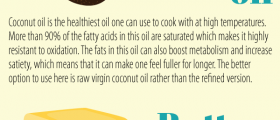
Magnesium stearate, also called octadecanoic acid and magnesium salt, is a solid white substance that contains two equivalents of stearate and one magnesium caton. Magnesium stearate melts at about 88 °C, is not soluble in water and it remains solid in room temperature. Magnesium stearate is generally considered safe for human consumption at levels below 2500 mg/kg per day. It is often used as a dilutent in the production of medical tablets, capsules and powders. Magnesium stearate is manufactured from both animal and vegetable oils. Most frequently, the substance is made by hydrogenating cottonseed or palm oil. Very often, nutritional supplements specify that the magnesium stearate used is sourced from vegetables.
Uses of magnesium stearate
The substance has lubricating properties, and thus prevents ingredients from sticking to manufacturing equipment during the compression of chemical powders into solid tablets. Magnesium stearate is also used to bind sugar in hard candies and as a frequent ingredient in baby formulas. Magnesium stearate is listed on most vitamin and mineral supplements on the market. Magnesium stearate is one of the components of bathtub rings found in homes.
Magnesium stearate side effects
There is a lot of debate and controversy about the dangers of magnesium stearate. Some of the most aggressive antagonists claim it is hydrogenated, toxic and immuno-suppressive, while the others try to prove that magnesium stearate is nothing more than a sales pitch.
The claim that stearic acid suppresses the immune system is unfounded. It is probably derived from a study on the effectiveness of a mixture of stearic acid, diatomaceous earth and bovine serum albumin as an immune suppressant for transplant patients. Studies on the saturated fat stearic acid have never reported it to have a negative effect on the immune system.
The side effects of magnesium stearate are evident if the manufacturer uses synthetically obtained magnesium stearate by hydrogenating cottonseed and other vegetable oils. No responsible manufacturer of vitamins would use any hydrogenated product as a raw material, because in the hydrogenation process the oil gets exposed to high heat and pressure in the presence of a metal catalyst for several hours, creating a hydrogenated saturated fat. Furthermore, the metal catalyst used in the hydrogenation process may also contaminate the stearates produced. An extra bad point is that cottonseed oil has the highest content of pesticide residues of all commercial oils.
There is no human evidence or study that shows magnesium stearate is in any way harmful, but what is certain is that a tablet without magnesium stearate has a 90% absorption rate, while a tablet with magnesium stearate only has a 25% - 30% absorption rate.

















Your thoughts on this
Loading...